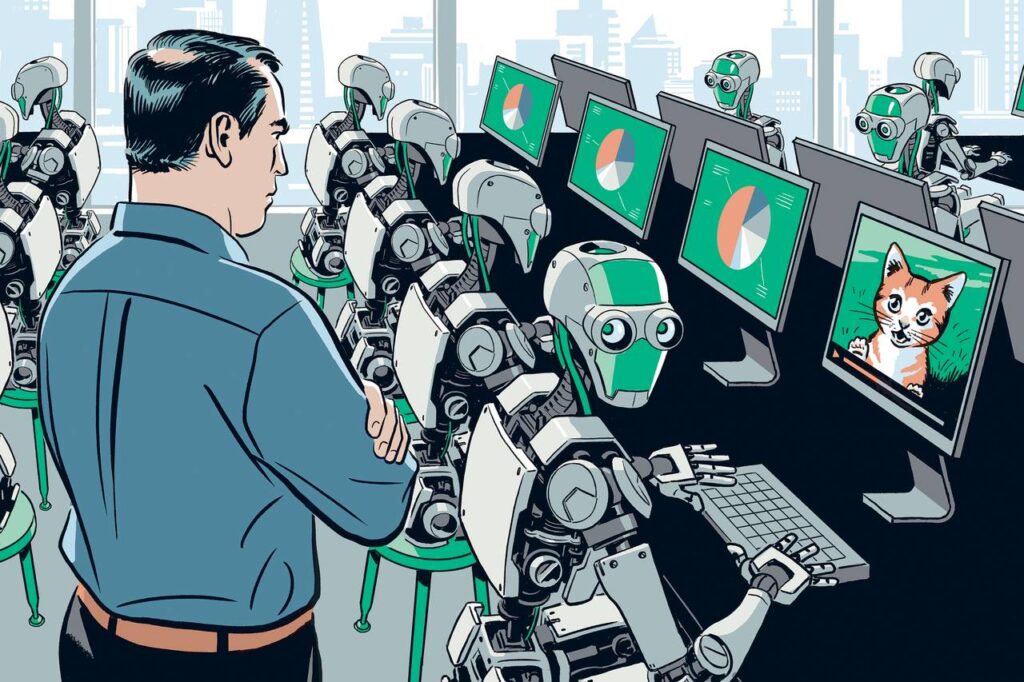Why AI Won’t Replace Human Intelligence in Cybersecurity
Technology has advanced significantly in recent years, largely due to breakthroughs in AI. Today, approximately 51 percent of businesses utilize AI for cybersecurity and fraud management, as it can detect potential breaches before they cause harm.
However, the effectiveness of AI can lead to overreliance on this technology. This overconfidence resulted in 77 percent of these companies experiencing a breach within their AI systems. As technology continues to evolve, such issues are likely to recur, especially if left unsupervised.
Despite these challenges, companies should not shy away from using AI for cybersecurity. When used correctly, AI is undeniably an asset. Instead of replacing human intelligence, businesses should leverage AI to augment it. Incorporating human oversight and input is crucial to avoid creating security blind spots.
As artificial intelligence (AI) continues to advance, its role in cybersecurity has become increasingly prominent. From detecting anomalies to predicting potential threats, AI has transformed how we approach digital security. However, despite its impressive capabilities, AI is unlikely to replace human intelligence in cybersecurity.

The Complexity of Cyber Threats
Cyber threats are complex and ever evolving. Hackers continually develop new methods to breach systems, often employing sophisticated techniques that can outsmart automated defenses. While AI can recognize patterns and anomalies, it struggles to adapt to novel, unprecedented threats without human intervention. Cybersecurity experts can analyze context, understand the broader implications of an attack, and devise creative solutions that AI alone might miss.
The Need for Human Judgment
Effective cybersecurity often requires nuanced decision-making that goes beyond algorithmic processing. Humans possess the ability to interpret ambiguous data, consider ethical implications, and make judgment calls in situations where there is no clear right or wrong answer. AI, while powerful in data processing and pattern recognition, lacks the ability to make these nuanced decisions.
Ethical Considerations
The ethical dimension of cybersecurity is crucial. Decisions about privacy, data protection, and response strategies often require a human touch to navigate the ethical landscape. For example, determining the balance between user privacy and security, or deciding how to disclose a data breach to the public, are decisions best made by humans who can weigh the ethical consequences.
Collaboration and Communication
Cybersecurity is not just about technology; it’s also about people. Effective defense strategies require collaboration and communication across teams and organizations. Humans excel in these areas, bringing diverse perspectives and expertise to the table. AI can support these efforts by providing data and insights, but it cannot replace the collaborative, communicative aspects of human intelligence.
The Importance of Context
AI systems can analyze vast amounts of data quickly, but they often lack context. Human cybersecurity experts can understand the broader context of an attack, considering factors such as geopolitical situations, organizational culture, and the specific vulnerabilities of different systems. This contextual understanding is crucial for developing effective defense strategies and responding appropriately to threats.
Learning from Experience
Humans learn from experience in ways that AI currently cannot. Cybersecurity experts draw on years of training and hands-on experience to respond to threats. While AI can learn from data, it lacks the ability to understand and adapt to complex, real-world situations in the same way humans do. The intuition and insight gained from experience are invaluable assets in the fight against cybercrime.
The Role of Creativity
Cybersecurity often requires creative problem-solving. Attackers are constantly finding new ways to bypass defenses, and cybersecurity professionals must be equally inventive in their countermeasures. Human creativity, intuition, and ingenuity are essential in devising innovative solutions and staying one step ahead of cybercriminals. AI can assist with these tasks, but it cannot replicate the creativity that humans bring to the table.
The Bottom Line
As artificial intelligence continues to advance, its role in cybersecurity becomes increasingly vital. AI has revolutionized digital security by detecting anomalies and predicting threats, significantly enhancing our defensive capabilities. However, AI’s impressive prowess should not lead to the misconception that it can replace human intelligence in this domain.
The complexity of cyber threats, the need for human judgment, ethical considerations, collaboration, contextual understanding, experiential learning, and the necessity for creativity underscore why human intelligence remains irreplaceable in cybersecurity. AI excels in data processing and pattern recognition, but it falls short in adapting to unprecedented threats, making nuanced decisions, navigating ethical dilemmas, and providing contextual insights that only humans can offer.






